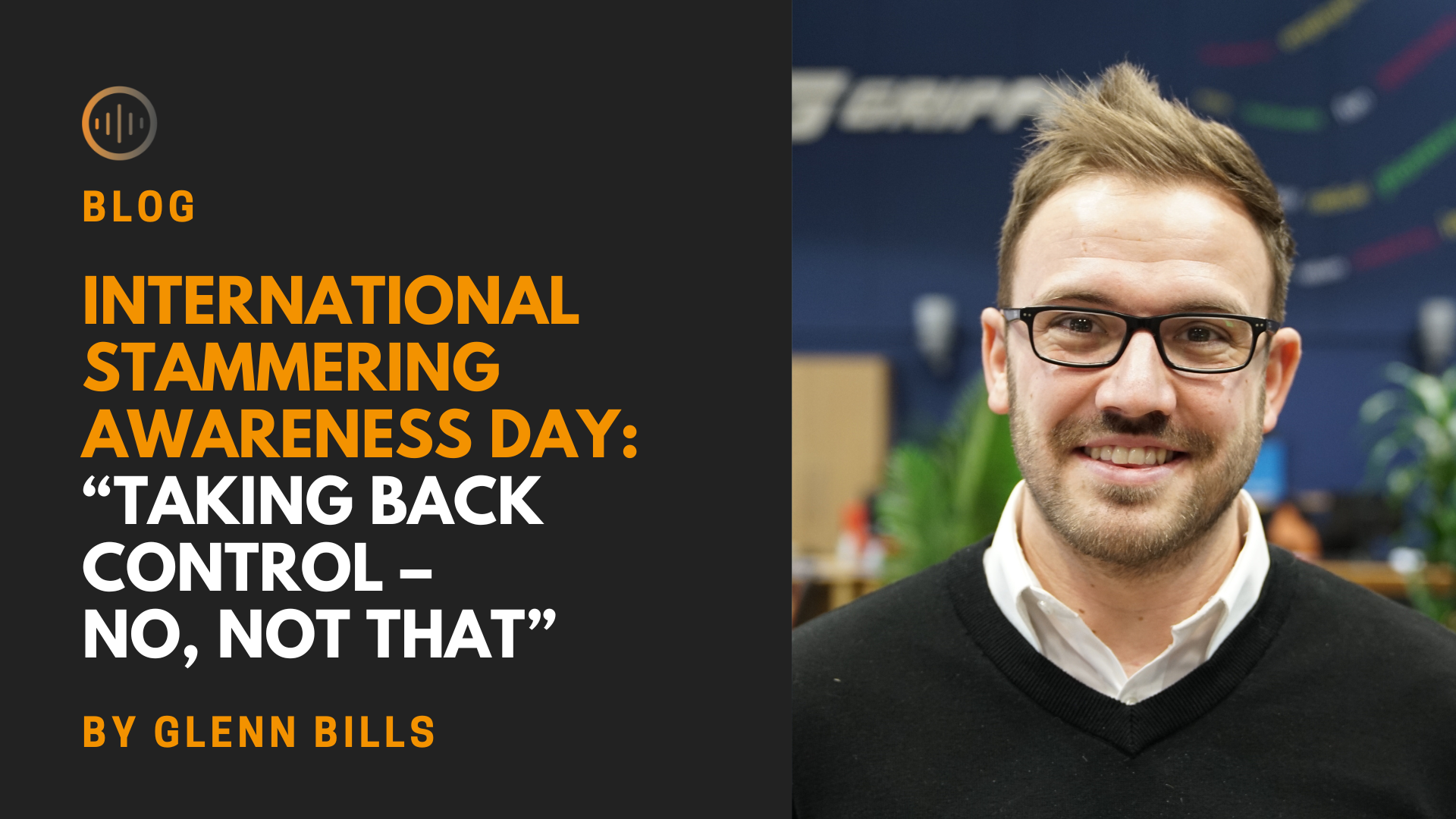

On a recent episode of The Rest Is Politics podcast, former Labour Director of Communications, Alastair Campbell declared “the ability to speak well, clearly, and communicate well is the key to social mobility”. Hard to disagree – even agreeably.
Any seminar or workshop on communication will start with a set of percentages (disclaimer: percentages may vary depending on the source) that state as little as 7% of our communication is the spoken word. 38% comes from the tone we take and 55% from body language and facial expressions.
We all know that effective communication is absolutely critical in business and society today, but how much do we really understand about the various challenges that our colleagues and peers face when it comes to communicating effectively?
————————————————————————————————————————
“We were all speaking like you for the rest of the day after you left”.
Laughter followed and, if the interaction were in person, the comment would undoubtedly have been accompanied with a jovial smile and a light jab in the arm, or ruffle of the hair.
Hardly the feedback an aspiring Product Manager, albeit one with a fairly severe stammer, was hoping for. Particularly after over 20 minutes of pacing quiet corridors near the fire exit to avoid being heard by colleagues, psyching himself up, and practising how to say “Hello Steve”. All this to make a simple phone call following a site trial of a new product. Once the contextually courageous act of dialling an 11-digit number and speaking to another human was finally achieved (and the chuckling had died down of course), the feedback on the product was disastrous and it was back to the drawing board on all fronts.
It was this, and various similar compounding instances over many years, that made me realise that I was lacking the key that Alastair Campbell referred to on a podcast 10 years later. I felt I had to at least try to “take back control”, a phrase I’m hesitant to include due to the over-and-inappropriate-use in recent years (mainly on the side of campaign buses…) but unlike those instances, in this context, it actually makes sense.
————————————————————————————————————————
The British Stammering Association (STAMMA) define stammering, also referred to as stuttering, as a neurological condition that makes it physically hard to speak. In simplistic terms, someone who stammers may repeat sounds or syllables, make sounds longer, get stuck on certain words or have words that don’t come out at all, despite knowing what they want to say. This often leads to the tone not necessarily aligning with the intention, and body language and eye contact that hardly screams conviction, meaning clear communication can be a challenge.
Tuesday 22nd October marks International Stammering Awareness Day, and whilst awareness is certainly much better in the public consciousness thanks to prominent figures with speech impediments, there is still some way to go. As responsible business leaders, we all have a role to play in this.
It is regularly cited that 1% of the population stammer, although more recent research in the UK indicates it could be as high as 3%. The working population of the UK is ~33 million people, and whilst statisticians will be horrified with my very crude analysis, this suggests that between 330,000 and 990,000 people with stammers are working in the UK. This makes it highly likely that as business leaders, with the various internal and external stakeholders we deal with, we will work closely with someone who stammers. Giving this individual context, the average LinkedIn user in the UK has ~400 connections. Applying my crude analysis once more, this means that you’re likely connected to 4 to 12 people with a stammer.
There is support available to those that want it and I would be happy to share details with anyone reading this that is interested to know more. It is important to note though, that not all people with stammers feel the need to take action like I did. Being comfortable with your communication is the important part, whatever form that takes.
————————————————————————————————————————
My speech and communication ability has certainly affected my career and life to date, in two very different ways.
On one hand, I have a catalogue of avoidances, embarrassments and frustrations like the light-hearted and well-meant feedback I received from Steve that day. There are also a series of more disappointing, misguided and borderline offensive experiences. From being both unwilling and fundamentally unable to deliver a presentation to a small business studies class in school, to, whilst working for a well-known grocery retailer, being informed by a manager (I intentionally don’t use the term leader here) that despite enrolling on the management programme, that I “wouldn’t be able to progress to management positions because of my speech”. Both utterly charmless and chronically inaccurate in equal measure!
My other more recent catalogue though, the Spring 2015 edition if you will, that still remains in circulation almost a decade later, is full of communication experiences my younger self deemed out of reach. Radio interviews, speaking publicly at events, returning to my secondary school and delivering a business studies lesson, delivering significant speeches at my own wedding and weddings of loved ones, presenting business updates at our global communications meetings, reading my children their bedtime stories, recording video content to launch new products and campaigns, presenting to panels and winning awards for International Trade, and teaching others the methods that I use to limit the impact of my stammer and be an effective communicator.
The factors that perfectly aligned and allowed me to take back control of my speech (via a 4-day residential course in the Royal Station Hotel in Newcastle and subsequently multiple hours, days, weeks and months of practice and facing my fears head on), were;
Stammering, effective communication and my story aside – imagine the personal growth, impact and commitment to a business, resulting in increased organisational output, productivity and staff retention, that would be possible if these two fairly simple factors aligned more often. As responsible business leaders, we need to encourage our people to take a step outside of their comfort zones, particularly in relation to communication skills. Sure, courses in time management, attending conferences and reading Microsoft Excel for Dummies are traditional cornerstones of personal development plans, but there is so much more available to really support personal development.
The realisation for me was that, despite the old adage, opportunity rarely knocks. It more often than not stands at the edge of your comfort zone, waving you over.


